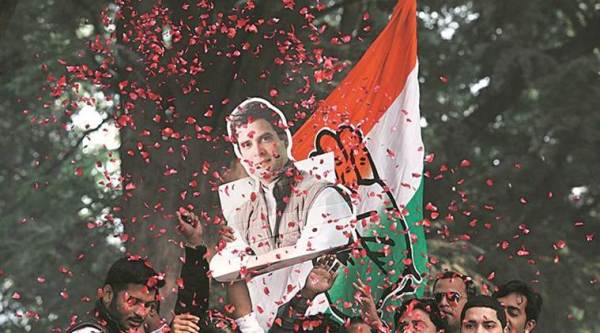Taming hubris
BJP has work to do to take back narrative — assembly results raise questions on governance record, temple

In normal times, what happened on December 11 would have been called routine self-correction in a democratic polity. A competitive democracy abhors interminable incumbency. Indeed, in presidential systems, there are explicit term limits on executive power. No US President, for example, can be in power for more than two terms. In parliamentary systems, such as the one in India, there are no executive term limits, but if the polity is competitive enough, no party can normally hold on to power for more than two or three terms. What happened in Delhi from 1952-1971 (Congress dominance), in West Bengal from 1977 to 2011 (CPM hegemony), or in Gujarat from 1998 till now (BJP dominance) is most unusual. For Madhya Pradesh and Chhattisgarh to give a fourth-term majority to the BJP would have been truly exceptional.
But these are not normal times. Since the rise of the BJP to national power in May 2014, we have witnessed a truly mammoth exhibition of political hubris. Nothing captures that hubris better than the BJP slogan of Congress-mukt Bharat (Congress-free India). The Congress party also often displayed arrogance during its rule. But even at the height of its power in the 1950s and 1960s, it never thought of, or proposed, the decimation of opposition parties as a political project. A conceptual distinction between defeat and decimation is always necessary. Democratic politics and temper are about the former, not the latter. When Rahul Gandhi, in his late evening press conference on December 11, said, “hamein unki vichardhara ko harana hai, unhe desh se mitana nahin hai” (“We want to defeat their ideology, not obliterate them as an organisation from India”), he made a democratic statement in his moment of triumph.
In three Hindi heartland states, power is not simply changing hands, which is a standard democratic practice, but the arrogant project of Congress-free India has been tamed. The BJP not only ruled these states by huge margins, but it had also won 62 of the 65 parliamentary seats there in 2014. While the transition from state assembly elections to parliamentary elections is rarely mechanical, the possibility that the BJP’s Lok Sabha tally in these states might be halved simply cannot be ruled out.






































No hay comentarios:
Publicar un comentario